Non-communicable diseases
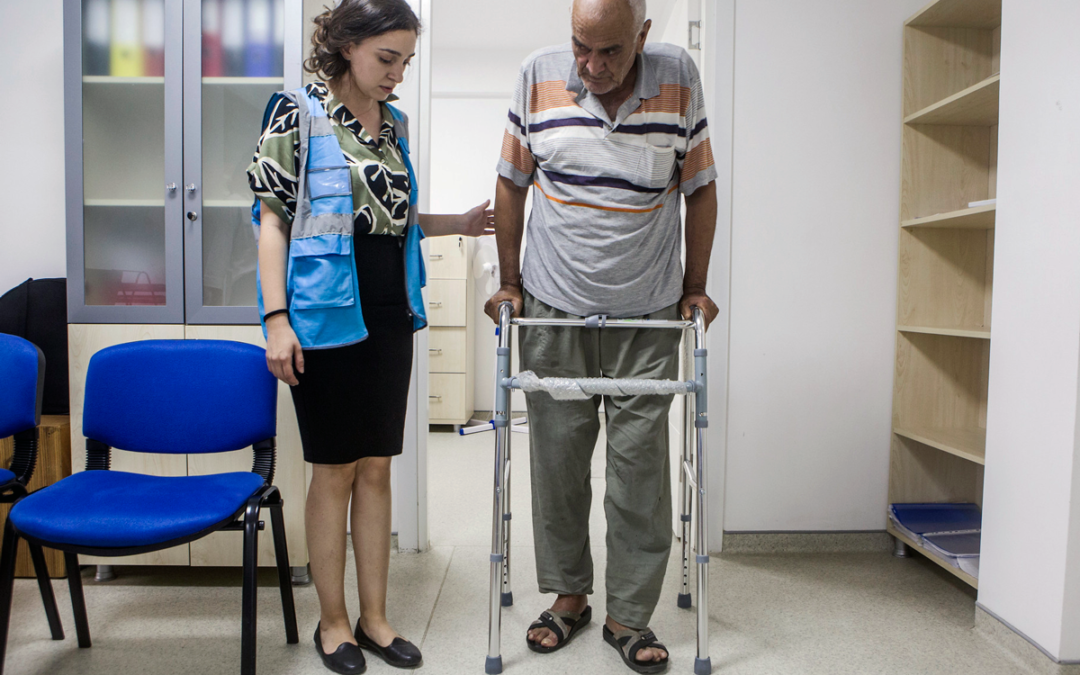
Jul 18, 2019 | News
It’s a familiar scene: a family, exhausted from fleeing conflict or natural disaster waits at a crowded tent for help. Wounds get bandaged, kids get rehydrated and all receive food rations to tide them through the emergency. Everyone hopes that the crisis will pass...
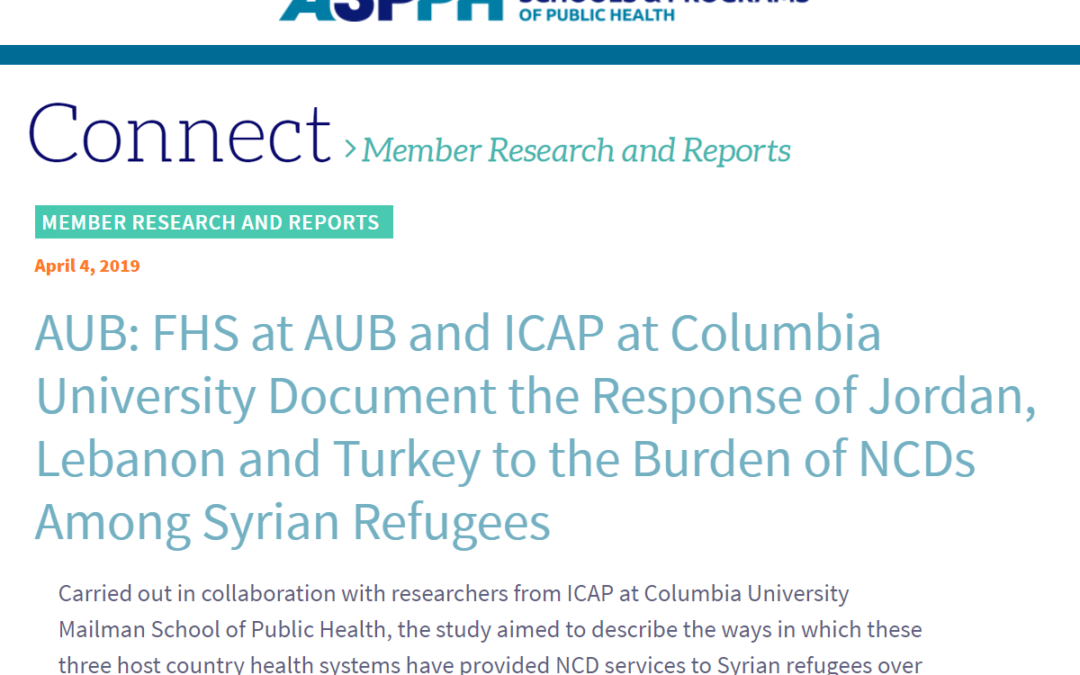
Apr 5, 2019 | In the Media, News
Since the beginning of the Syrian conflict in 2011, Jordan, Lebanon and Turkey have hosted large refugee populations, with a high pre-conflict burden of non-communicable diseases (NCDs). In this context, the Center for Research on Population and Health (CRPH) at the...
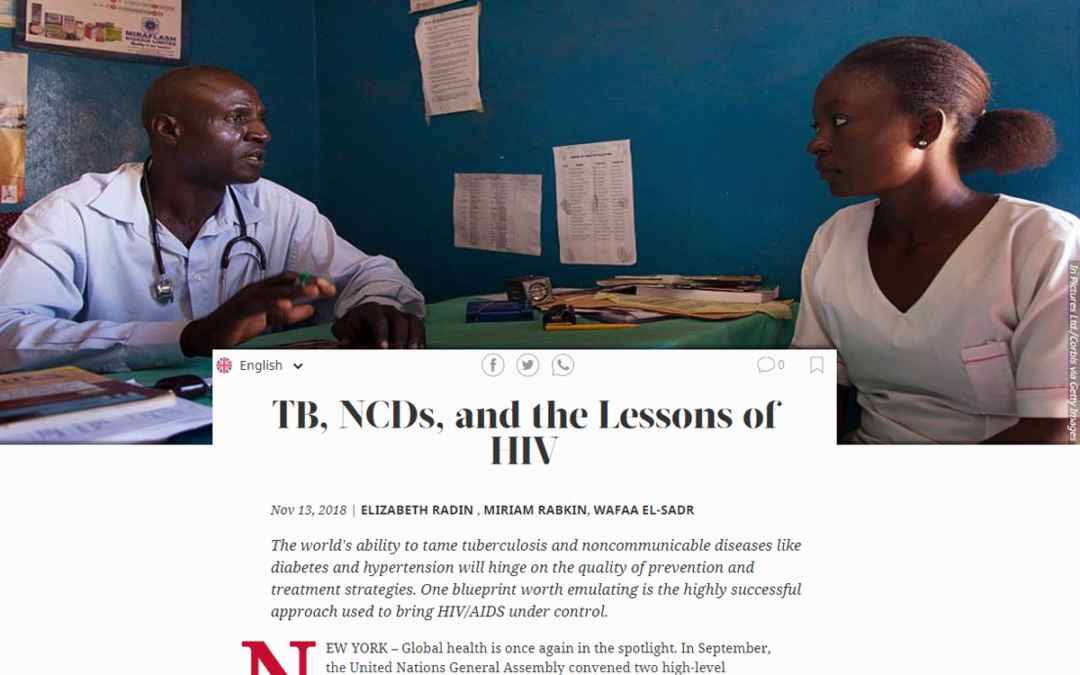
Nov 13, 2018 | In the Media, News
“The world’s ability to tame tuberculosis and noncommunicable diseases like diabetes and hypertension will hinge on the quality of prevention and treatment strategies,” write authors Elizabeth Radin, Miriam Rabkin, and Wafaa El-Sadr. “In...
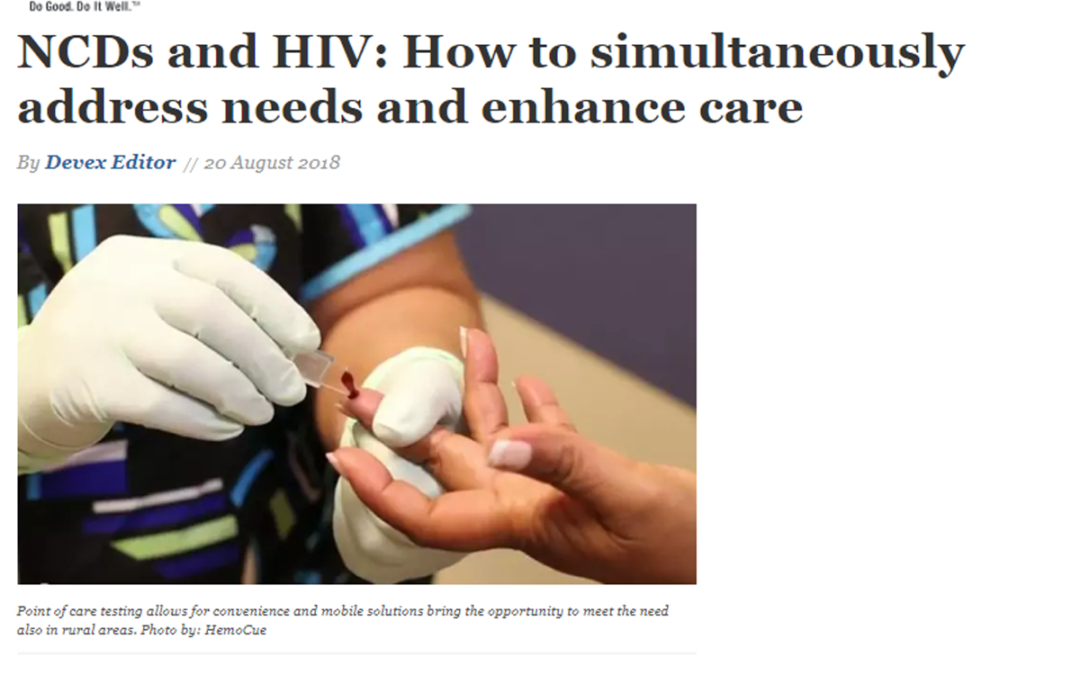
Aug 20, 2018 | In the Media, News
Noncommunicable diseases, chiefly cardiovascular diseases, cancers, respiratory diseases, and diabetes, are now responsible for 80 percent of “premature” deaths — occurring between the ages of 30-69 — in low- and middle-income countries. Due to the inflammatory...
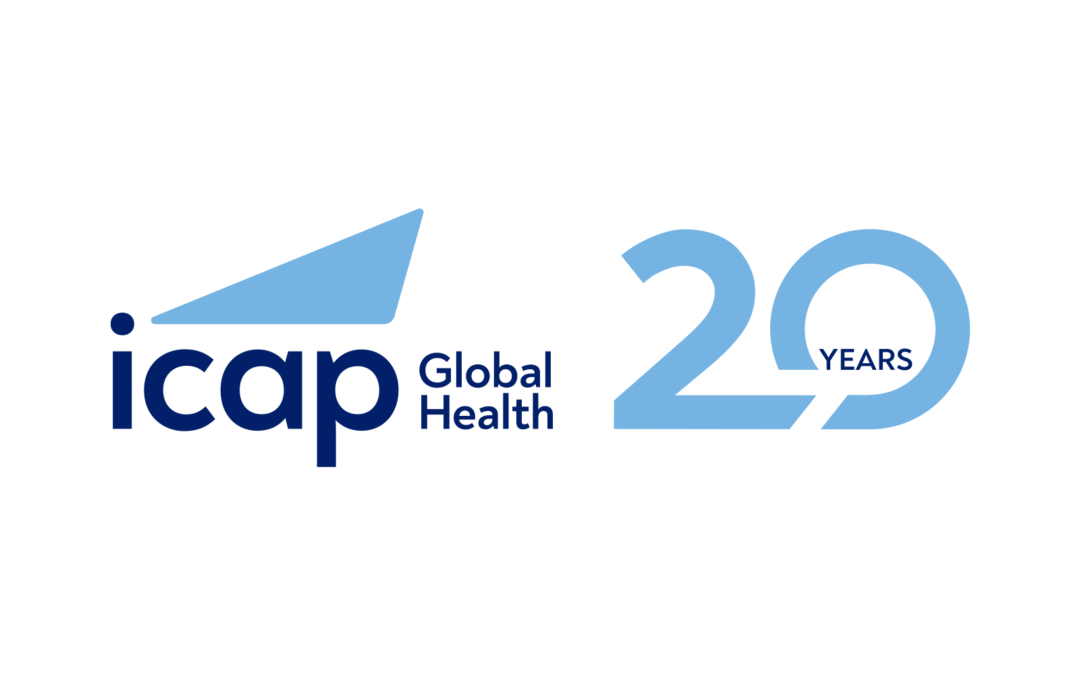
May 20, 2016 | News
The global response to the HIV epidemic offers lessons about ways to support continuous care for chronic health conditions during complex and protracted emergencies, such as the current refugee crisis, argue researchers Wafaa El-Sadr (professor of epidemiology and...









